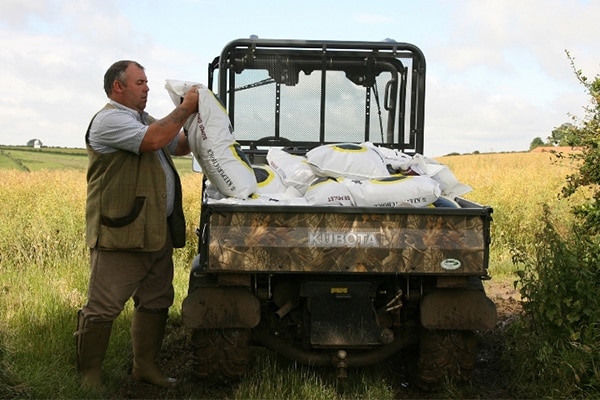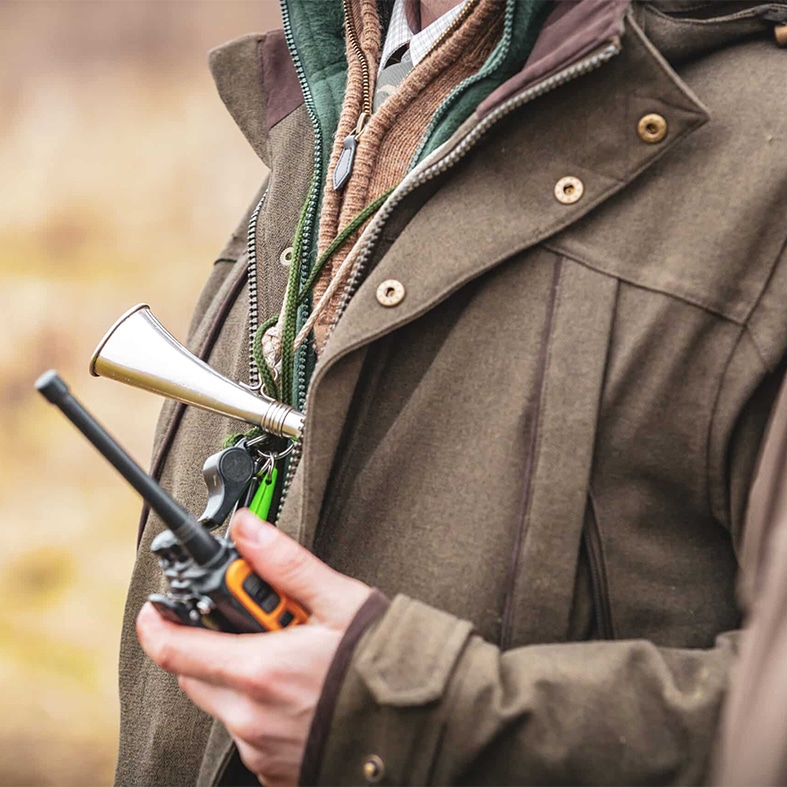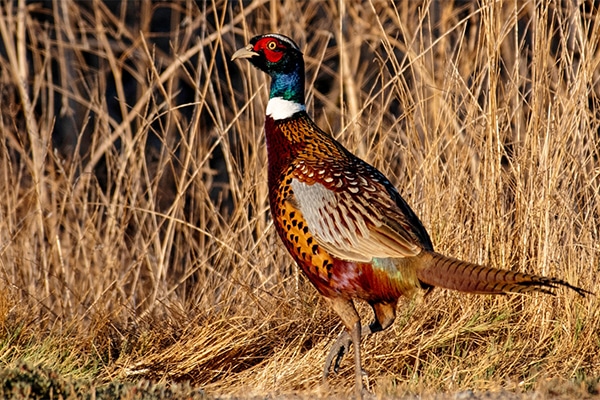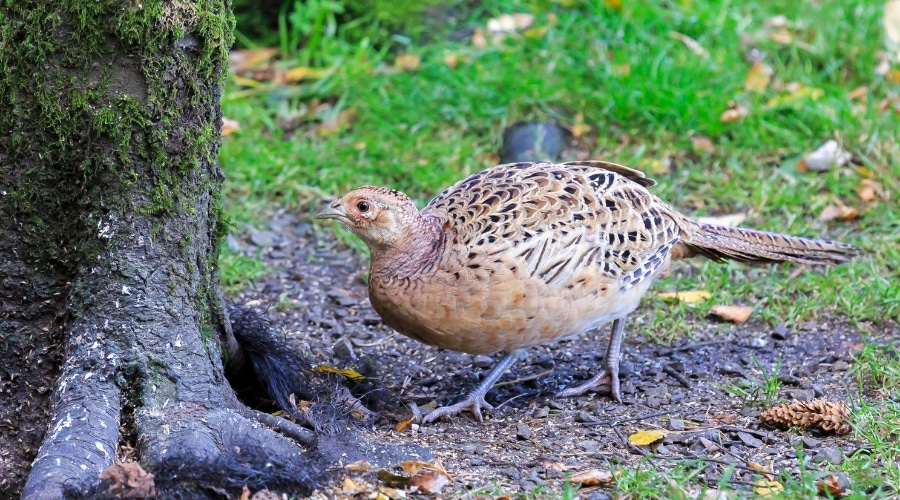
Have you booked your BASC shoot visit yet?
BASC’s shoot visits have been taken up by more than 300 shoots this year, and are on target to hit 400 by the end of 2021.
Get information on the legal shooting season for mammals and birds in the UK.
Learn about our current conservation projects and how you can get involved.
Comprehensive information and advice from our specialist firearms team.
Everything you need to know about shotgun, rifle and airgun ammunition.
Find our up-to-date information, advice and links to government resources.
Everything you need to know on firearms law and licensing.
All the latest news and advice on general licences and how they affect you.


BASC has an experienced and well-resourced team of experts, many of whom come from strong gamekeeping backgrounds with years of hands-on practical experience.
Game shooting is the bread and butter for the vast majority of BASC members, and supporting gamekeepers and shoots is at the very core of the association’s objectives.
The central pillar to this work is our dedicated game and wildlife management team – all former gamekeepers – backed by expert staff from BASC’s country and regional centres and specialist head office support teams.
So, what can our gamekeeping team do for you? BASC executive director of shooting and operations Steve Bloomfield explains: “Understanding the key threats to shooting and gamekeeping is one half of the battle, communicating this to those who need it on the frontline is the other. Not everyone has the time, ability or inclination to review social media or read newsletters or articles. BASC has an experienced and well-resourced regional structure with many officers coming from strong gamekeeping backgrounds with years of hands-on practical experience.
“Following the challenges brought about by or related to the likes of Covid, general licences and avian influenza, we realised that our ‘boots on the ground’ approach, aided by our strong technical and legal briefings, meant that we were uniquely placed to provide support directly to the keepers and shoots who need to be well informed and up to date with the law and best practice.
“Across the UK, gamekeepers, whether full-time, part-time or DIY, along with shoots of every description, can request a free shoot briefing on a range of subjects and issues – all you require is to be a member of BASC. And remember, gamekeeper and riverkeeper members get 24-hour insurance cover up to £50,000 for personal accidents.
“We also engage directly with the profession to ensure keepers have all the help they need. North of the border, BASC Scotland has key staff with good understanding in this area, backed by the BASC Gamekeeping and Wildlife Management Working Group made up of professional keepers and stalkers who are available to advise staff on topical issues, bring forward their own concerns and help with the planning of the annual Scottish Gamekeepers’ Day that we have run for 30 years.
BASC’s head of game and wildlife management, Glynn Evans, adds: “Much of what we do often goes unseen; in part that is because much of what we do to get the right outcome is based on trust and relationships built up over time with key partners and stakeholders.
“A press announcement about BASC’s success in engaging with a judicial review on general licences doesn’t show the many long days spent compiling and submitting evidence and briefing legal teams. Recently, the avian influenza outbreak has involved working with government, partners and other stakeholders to ensure that the proper positions and approaches are taken and that often-complex requirements and ‘what if’ scenarios are correctly relayed to the shooting sector.
“BASC is often the first point of contact for many media outlets and members of our team have appeared on a diverse range of programmes to promote our way of life. We work with our communications team to ensure the media are fully informed about the true nature of game shooting.” See below to find out more about our team.

I consider myself extremely lucky and proud that my whole working career prior to BASC has been within gamekeeping or the teaching of gamekeeping. Having spent several years as a keeper on a diverse sporting estate in Scotland, I moved into the education sector and began teaching game and wildlife management at Sparsholt College, later becoming senior lecturer in game, land and wildlife management at Newton Rigg College.
My role at BASC is to lead on all educational policy and give technical advice on topics such as trapping, general licences and consenting. Two key workstreams at the moment are the development of gamekeeping apprenticeships in Scotland and securing the future of college wildlife management courses in England.

I was very fortunate to grow up on our family smallholding, where I was introduced to shooting and the importance of conservation by my father at a very young age. Shooting, ferreting, trapping and beating on local shoots were all ‘standard’ weekend and school holiday activities growing up, and this is where my passion for shooting and conservation began.
I worked in the agricultural industry for several years after leaving school but then managed to secure a job as a gamekeeper on a local estate. I have since held headkeeper positions on two estates in the north of Cumbria for over 13 years, managing all aspects of game rearing, pest and predator control, shoot days and conservation projects before I joined BASC North as a regional officer in May 2022.

After gaining a Level 2 Diploma in work-based game and wildlife management through Sparsholt College, I spent two years working as a gamekeeper on a renowned wild bird shoot in Norfolk. I was able to learn on the job and gain first-hand knowledge and experience from the very best in their field.
Areas I studied included monitoring game populations and habitat, control of avian and vertebrate pests and predators using traps and shooting, care of gamebirds before, during and after release, running game shooting activities, and management of public relations and access to a sporting estate.
I continue to get my gamekeeping fix by managing my local game syndicate and spend most evenings and weekends on the farm working towards the coming shooting season. The work (and fun) never stops!

I started my keepering journey in my mid-teens, helping on a local game farm and then a local shoot. Realising this was my passion, I took a national diploma in game and wildlife management at Sparsholt College.
I went back to the game farm for a couple of years before being offered a job in my local gun shop and I continued my shooting career path in the gun trade.
After a few years, I went back into gamekeeping, working on several shoots. My last shoot closed at the same time as an opportunity to join BASC as a regional officer was advertised. The different shoots and practices I’ve seen on my journey have given me invaluable knowledge that I can pass on to members.

I studied game and wildlife management at Sparsholt College in Winchester before starting my gamekeeping career on a wild bird shoot in France. On returning to England I worked on two large pheasant and partridge shooting estates in the Home Counties, before joining BASC.
I have been a regional officer for the South East team for six years now, using knowledge gained as a gamekeeper to work closely with shoots in the region. Undertaking Covid advice visits – and now shoot briefing visits – has brought the benefit of my knowledge to bear on numerous topics including avian influenza and the transition away from lead shot, helping shoots make informed decisions while building good relationships with members.

I started my gamekeeping career as an underkeeper on a 4,000-acre estate in Shropshire. We produced eggs from our own stock of pheasants and partridges, incubating and rearing on site. Since then, I worked as a beatkeeper on a commercial estate in Hampshire, responsible for the management of habitats, deer and gamebirds on a beat of roughly 2,000 acres.
Prior to joining BASC, I worked as a single-handed keeper, setting up a small game shoot in Staffordshire, which was commercially viable within two seasons. I also delivered the gamekeeping and countryside management A-level course.
All this has aided me in my role at BASC when advising gamekeepers.

I have a PhD in law from the University of Basel, Switzerland. Before starting at BASC, I was a principal lecturer and associate head of Portsmouth Law School, teaching and researching in the fields of public and criminal law.
In my new role as head of evidence and environmental law, I am reviewing and researching the regulatory frameworks governing wildfowling, wildlife licences, gamebird release, and habitat management, with the aim of promoting and strengthening sustainable shooting. I am also leading our scientific advisors who support our work by gathering and analysing data to form an invaluable evidence base to underpin our arguments.

I completed a degree in countryside, conservation and recreation management, tailoring my studies around issues related to gamekeeping and shooting. Practical application of my studies, assisting on several shoots and mentoring, has enabled me to understand and advise on key issues that gamekeepers face today.
I spent several years at BASC as a gamekeeping officer before moving to my current role, advising on a range of topics from general licences and avian influenza, to trapping and snaring. I also support regional colleagues in training police staff on shooting-related subjects and getting the message across of how important gamekeepers are to rural communities and conservation.

Gamekeeping and environmental land management is my passion. I have spent 25 years as a moorland grouse keeper, starting out on an estate in the Scottish Highlands as a beatkeeper, before moving on to estates in the Scottish Borders, Yorkshire and the Peak District at a higher level.
I appreciate and champion the importance of gundogs and the many ways they support a keeper’s role. For the last five years, I have worked in education (game and wildlife management) to share my skills and knowledge with future keepers. These skills and experiences will enable me to become an asset to BASC and the wider land management sector.

My role at BASC is to look at the picture from both angles – translating what gamekeepers do for environmental policy objectives as well as how keepers and shoot managers can improve the public benefits provided by shooting.
A practical example is that we are about to launch our updated woodland management advice that will improve the condition of woodlands for game and wildlife. This gives the game manager the direct benefit of holding and showing game better and the public an enhanced woodland environment for biodiversity and carbon capture and storage. We are in a climate and biodiversity crisis across the UK and so we have to show the public our value if we want our children to have the opportunity to go shooting.

I have been involved with shooting and gamekeeping all my life. After studying game and wildlife management at college I spent several years as a professional keeper in Herefordshire. I also have a degree in conservation ecology.
In 2014, I joined the BASC gamekeeping team as a gamekeeping officer and subsequently as a deer officer. In 2017 I joined the South West team as a regional officer.
My wide-ranging experience includes all the practical aspects of game, wildlife and shoot management as well as the legal and regulatory frameworks that shoots have to operate within. This means I can advise members on every aspect of managing their shoot.

I spent more than 25 years as a full-time professional gamekeeper, mostly working with wild game in Norfolk. An experienced gundog trainer and field trial judge, I regularly work my dogs in the shooting field. I have travelled widely in the UK and Europe providing advice on shoot management and gundog training.
I keep my keepering hand in on a syndicate run with friends. Since joining BASC in 2010 I have forged links with key stakeholders in government and other organisations where I am able to use my knowledge, expertise and advocacy to represent BASC and the wider shooting sector.
For further information on everything from avian influenza to general licences, or to book your shoot briefing with a member of the team, contact your country/regional office or visit BASC In Your Area.
BASC is a trading name of the British Association for Shooting and Conservation Limited which is authorised and regulated by the Financial Conduct Authority (FCA) under firm reference number 311937.

BASC’s shoot visits have been taken up by more than 300 shoots this year, and are on target to hit 400 by the end of 2021.

NRW’s recommendation for gamebird release should be licensed from 2025 demonstrates a complete lack of fairness and transparency, says Conor O’Gorman.

The Avian Influenza Prevention Zones in England, Scotland and Wales were amended today, 9 January, following a Defra risk assessment.
Sign up to our weekly newsletter and get all the latest updates straight to your inbox.
© 2023 British Association for Shooting and Conservation. Registered Office: Marford Mill, Rossett, Wrexham, LL12 0HL – Registered Society No: 28488R. BASC is a trading name of the British Association for Shooting and Conservation Limited which is authorised and regulated by the Financial Conduct Authority (FCA) under firm reference number 311937.
If you have any questions or complaints about your BASC membership insurance cover, please email us. More information about resolving complaints can be found on the FCA website or on the EU ODR platform.
This website uses cookies so that we can provide you with the best user experience possible. Cookie information is stored in your browser and performs functions such as recognising you when you return to our website and helping our team to understand which sections of the website you find most interesting and useful.
Strictly Necessary Cookie should be enabled at all times so that we can save your preferences for cookie settings.
If you disable this cookie, we will not be able to save your preferences. This means that every time you visit this website you will need to enable or disable cookies again.
This website uses Google Analytics to collect anonymous information such as the number of visitors to the site, and the most popular pages.
Keeping this cookie enabled helps us to improve our website.
Please enable Strictly Necessary Cookies first so that we can save your preferences!
More information about our Cookie Policy